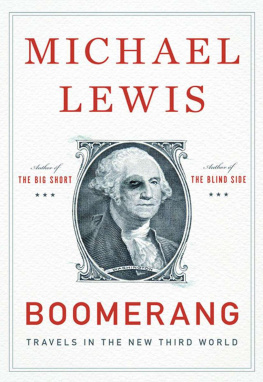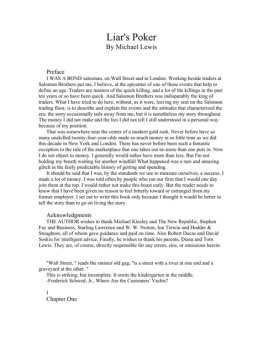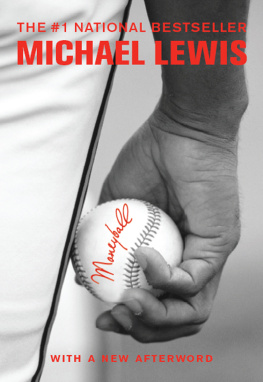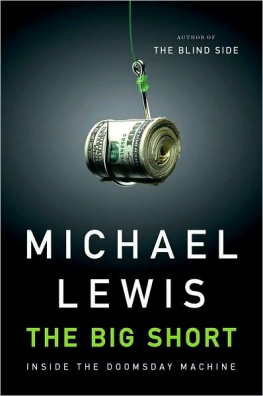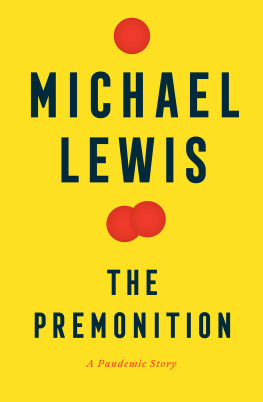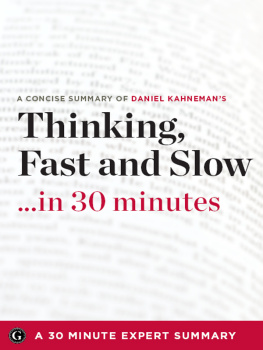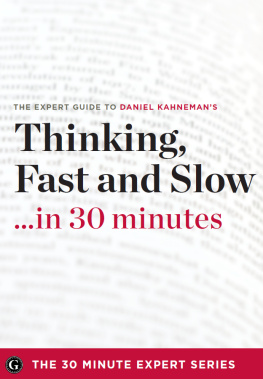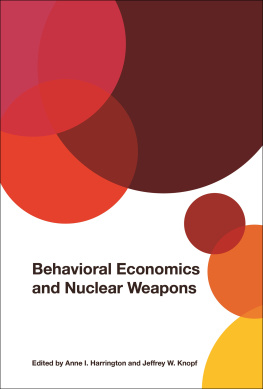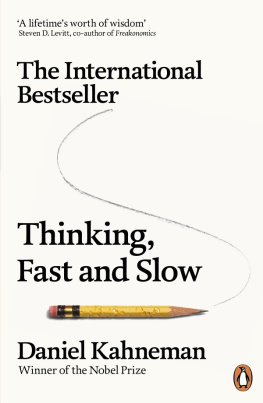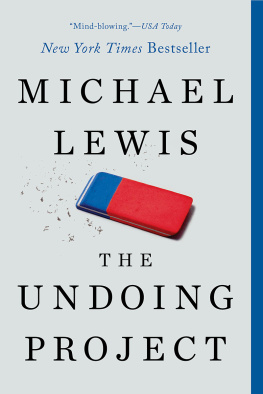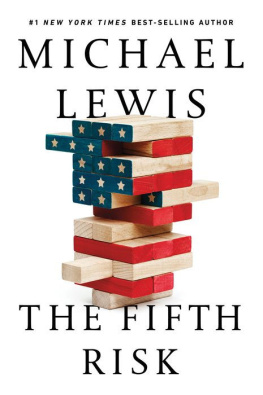
For Dacher Keltner
My Chief Jungle Guide
Doubt is not a pleasant condition, but certainty is an absurd one.
Voltaire
CONTENTS
The
UNDOING
PROJECT
Introduction
THE PROBLEM THAT NEVER GOES AWAY
B ack in 2003 I published a book, called Moneyball , about the Oakland Athletics quest to find new and better ways to value baseball players and evaluate baseball strategies. The team had less money to spend on players than other teams, and so its management, out of necessity, set about rethinking the game. In both new and old baseball dataand in the work of people outside the game who had analyzed that datathe Oakland front office discovered what amounted to new baseball knowledge. That knowledge allowed them to run circles around the managements of other baseball teams. They found value in players who had been discarded or overlooked, and folly in much of what passed for baseball wisdom. When the book appeared, some baseball expertsentrenched management, talent scouts, journalistswere upset and dismissive, but a lot of readers found the story as interesting as I had. A lot of people saw in Oaklands approach to building a baseball team a more general lesson: If the highly paid, publicly scrutinized employees of a business that had existed since the 1860s could be misunderstood by their market, who couldnt be? If the market for baseball players was inefficient, what market couldnt be? If a fresh analytical approach had led to the discovery of new knowledge in baseball, was there any sphere of human activity in which it might not do the same?
In the past decade or so, a lot of people have taken the Oakland As as their role model and set out to use better data, and better analysis of that data, to find market inefficiencies. Ive read articles about Moneyball for Education, Moneyball for Movie Studios, Moneyball for Medicare, Moneyball for Golf, Moneyball for Farming, Moneyball for Book Publishing(!), Moneyball for Presidential Campaigns, Moneyball for Government, Moneyball for Bankers, and so on. All of a sudden were Moneyballing offensive linemen? an offensive line coach for the New York Jets complained in 2012. After seeing the diabolically clever data-based approach taken by the North Carolina legislature in writing laws to make it more difficult for African Americans to vote, the comedian John Oliver congratulated the legislators for having Money-balled racism.
But the enthusiasm for replacing old-school expertise with new-school data analysis was often shallow. When the data-driven approach to high-stakes decision making did not lead to immediate successand, occasionally, even when it didit was open to attack in a way that the old approach to decision making was not. In 2004, after aping Oaklands approach to baseball decision making, the Boston Red Sox won their first World Series in nearly a century. Using the same methods, they won it again in 2007 and 2013. But in 2016, after three disappointing seasons, they announced that they were moving away from the data-based approach and back to one where they relied upon the judgment of baseball experts. (We have perhaps overly relied on numbers... , said owner John Henry.) The writer Nate Silver for several years enjoyed breathtaking success predicting U.S. presidential election outcomes for the New York Times , using an approach to statistics he learned writing about baseball. For the first time in memory, a newspaper seemed to have an edge in calling elections. But then Silver left the Times , and failed to predict the rise of Donald Trumpand his data-driven approach to predicting elections was called into question... by the New York Times ! Nothing exceeds the value of shoe-leather reporting, given that politics is an essentially human endeavor and therefore can defy prediction and reason, wrote a Times columnist, late in the spring of 2016. (Never mind that few shoe-leather reporters saw Trump coming, either, or that Silver later admitted that, because Trump seemed sui generis, hed allowed an unusual amount of subjectivity to creep into his forecasts.)
Im sure some of the criticism of people who claim to be using data to find knowledge, and to exploit inefficiencies in their industries, has some truth to it. But whatever it is in the human psyche that the Oakland As exploited for profitthis hunger for an expert who knows things with certainty, even when certainty is not possiblehas a talent for hanging around. Its like a movie monster thats meant to have been killed but is somehow always alive for the final act.
And so, once the dust had settled on the responses to my book, one of them remained more alive and relevant than the others: a review by a pair of academics, then both at the University of Chicagoan economist named Richard Thaler and a law professor named Cass Sunstein. Thaler and Sunsteins piece, which appeared on August 31, 2003, in the New Republic , managed to be at once both generous and damning. The reviewers agreed that it was interesting that any market for professional athletes might be so screwed-up that a poor team like the Oakland As could beat most rich teams simply by exploiting the inefficiencies. Butthey went on to saythe author of Moneyball did not seem to realize the deeper reason for the inefficiencies in the market for baseball players: They sprang directly from the inner workings of the human mind. The ways in which some baseball expert might misjudge baseball playersthe ways in which any experts judgments might be warped by the experts own mindhad been described, years ago, by a pair of Israeli psychologists, Daniel Kahneman and Amos Tversky. My book wasnt original. It was simply an illustration of ideas that had been floating around for decades and had yet to be fully appreciated by, among others, me.
That was an understatement. Until that moment I dont believe Id ever heard of either Kahneman or Tversky, even though one of them had somehow managed to win a Nobel Prize in economics. And I hadnt actually thought much about the psychological aspects of the Moneyball story. The market for baseball players was rife with inefficiencies: why? The Oakland front office had talked about biases in the marketplace: Foot speed was overrated because it was so easy to see, for instance, and a hitters ability to draw walks was undervalued in part because walks were so forgettablethey seemed to require the hitter mainly to do nothing at all. Fat or misshapen players were more likely to be undervalued; handsome, fit players were more likely to be overvalued. All of these biases that the Oakland front office talked about Id found interesting, but I hadnt really pushed further and asked: Where do the biases come from? Why do people have them? Id set out to tell a story about the way markets worked, or failed to work, especially when they were valuing people. But buried somewhere inside it was another story, one that Id left unexplored and untold, about the way the human mind worked, or failed to work, when it was forming judgments and making decisions. When faced with uncertaintyabout investments or people or anything elsehow did it arrive at its conclusions? How did it process evidencefrom a baseball game, an earnings report, a trial, a medical examination, or a speed date? What were peoples minds doingeven the minds of supposed expertsthat led them to the misjudgments that could be exploited for profit by others, who ignored the experts and relied on data?
And how did a pair of Israeli psychologists come to have so much to say about these matters that they more or less anticipated a book about American baseball written decades in the future? What possessed two guys in the Middle East to sit down and figure out what the mind was doing when it tried to judge a baseball player, or an investment, or a presidential candidate? And how on earth does a psychologist win a Nobel Prize in economics? In the answers to those questions, it emerged, there was another story to tell. Here it is.
Next page

